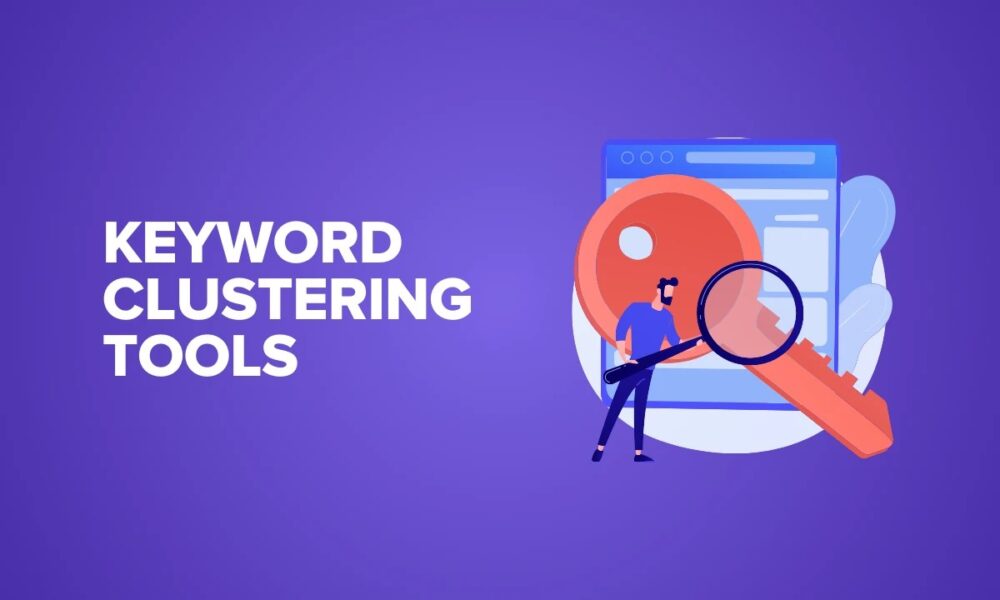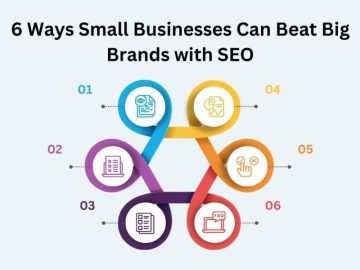In today’s dynamic world of Search Engine Optimization (SEO), keyword clustering has become a pivotal strategy for content creators and marketers. This method groups semantically related keywords, forming a structured and cohesive content framework that search engines can easily interpret and rank. Utilizing a keyword clustering tool can simplify your content planning, enhance your website’s structure, and significantly improve your search engine rankings.
Such an approach not only boosts your website’s authority on specific topics and its relevance to particular search queries but also enhances user experience and engagement.
Keyword clustering focuses on targeting multiple keywords within a single piece of content instead of creating separate pages for each keyword. This technique ensures comprehensive coverage of subtopics, avoids keyword cannibalization, and attracts more targeted organic traffic to your site. With an effective keyword clustering tool, you can identify and group keywords based on their search intent and relevance. This makes it easier to develop pillar content supported by cluster pages targeting specific long-tail keywords.
In this article, we’ll dive into the five best keyword clustering tools available, each offering unique features and benefits. Whether you’re an experienced SEO professional or just beginning to optimize your content, these tools will help you implement an effective keyword clustering strategy, elevating your SEO content and driving sustainable growth for your business.
1. SEOpital
Overview and Key Features
SEOpital is a robust tool designed to streamline your SEO efforts, especially through its advanced keyword clustering capabilities. It analyzes search results for a group of keywords to spot patterns and overlaps, grouping keywords based on the similarity of the ranking URLs. If multiple keywords lead to the same URLs in search results, SEOpital indicates a close relationship in search intent among those keywords, enabling you to target several keywords with a single content page.
A standout feature of SEOpital is its ability to retrieve Google SERP data for each keyword and group them accordingly. This helps identify cannibalization issues and gaps in semantic optimization effortlessly. Additionally, SEOpital groups keywords into topical clusters, which is invaluable for building a well-structured website architecture.
The tool also offers features like H1 title generation, image creation, and content writing in multiple languages, making it a comprehensive solution for SEO content creation.
Pricing Structure
SEOpital provides a straightforward pricing plan. The Basic package starts at $97 per month, granting access to its key features, including the keyword clustering tool.
Pros and Cons
Pros of using SEOpital include its time-saving and cost-effective nature, as it can generate SEO-optimized content quickly. It also aids in ranking your content higher on Google by incorporating necessary keywords and aligning with search intent.
The content produced is relevant, engaging, and free from plagiarism.
2. SEO Scout
Overview and Key Features
SEO Scout is more than just a keyword clustering tool; it’s a comprehensive suite of SEO tools designed to enhance your organic performance. Its Keyword Grouping Tool automatically collects and groups related keywords, questions, and suggestions based on in-depth research. By combining your Google Search Console data with its own SEO crawler, it offers unique insights to improve your organic search traffic.
A key feature of SEO Scout is its advanced SEO testing tools, which allow you to test every site change, from content to titles, and analyze the impact. It also provides automated change tracking, monitoring every modification on your site and reporting its effects. Additionally, SEO Scout offers unlimited keyword rank tracking and Google SERP position analysis, giving you a detailed view of your site’s performance across all ranked keywords.
Pricing Structure
SEO Scout offers flexible pricing plans to suit different needs and budgets. The Starter plan, priced at $49 per month, includes 10 reports per month, 20 reports per day with 250 keywords per report, and unlimited keyword tracking.
The Business plan, at $99 per month, offers more extensive features, including 30 reports per month, 100 reports per day with 1,000 keywords per report, and tracking for up to 10 sites. For larger operations, the Agency plan at $199 per month provides advanced SEO testing tools, the ability to optimize over 60 content pieces monthly, and tracking for up to 25 sites.
Pros and Cons
Pros of using SEO Scout include its comprehensive approach to SEO analysis and optimization. It provides in-depth insights into your site’s performance, assists in practical website analysis and competitor research, and enhances website optimization through keyword ranking tracking. The tool is also effective in increasing website exposure through on-page optimization and building strong backlinks.
However, some cons include a learning curve that requires time to fully utilize its features. The subscription-based pricing might be a barrier for small businesses, and reliance on third-party data sources can sometimes lead to inaccuracies. Additionally, the vast amount of data provided can be overwhelming for some users.
3. Keywords Explorer by Ahrefs
Overview and Key Features
Ahrefs’ Keywords Explorer is a powerful tool tailored for in-depth keyword research and analysis. Part of the broader Ahrefs suite, it’s widely used by SEO professionals, digital marketers, and content creators.
The Keywords Explorer tool excels in generating thousands of keyword ideas from various search engines, including Google, YouTube, and Amazon. This versatility makes it suitable for diverse SEO needs.
A key feature is its detailed analysis of search intent. The tool helps users identify the intent behind search queries, categorizing them into traditional search intent categories as well as branded and local searches. This is particularly useful for creating content that aligns with audience search behavior.
Additionally, it provides metrics like search volume, keyword difficulty, and traffic potential, enabling informed decisions on which keywords to target.
The tool also includes advanced filtering and sorting options, such as identifying trending keywords and analyzing search volume growth, allowing marketers to spot emerging topics and make data-driven keyword targeting decisions.
Furthermore, the SERP overview feature offers insights into the top-ranking pages for specific keywords, including domain ratings, backlinks, and traffic estimates.
Pricing Structure
Ahrefs offers several pricing plans tailored to different needs. The Lite plan, at $99 per month, suits small businesses and hobby projects, providing essential data for basic SEO needs. The Standard plan, priced at $199 per month, is ideal for SEO professionals and in-house marketers, offering more comprehensive features.
For larger operations, the Advanced plan at $399 per month and the Enterprise plan starting at $999 per month provide additional tools and higher data allowances.
Additionally, Ahrefs offers a free plan, Ahrefs Webmaster Tools, allowing website owners to monitor their site’s health, keywords, and backlinks, though this plan has limited features compared to the paid options.
Pros and Cons
Pros of using Ahrefs’ Keywords Explorer include its highly accurate data, especially for backlink analysis and keyword research. The user-friendly interface makes it accessible for beginners, and the extensive educational resources help users maximize the tool’s potential. Advanced filtering and trending keyword features simplify identifying and targeting high-potential keywords.
However, some cons include the high cost, particularly for the Advanced and Enterprise plans, which might be beyond the budget for smaller businesses or individuals. The tool also has a steep learning curve, and some features, like trending keywords and advanced filtering, are only available on higher-tier plans.
Moreover, while the AI-enhanced keyword suggestions are beneficial, they sometimes recommend keywords with high difficulty scores that may be challenging to rank for.
4. Keyword Insights
Overview and Key Features
Keyword Insights is an innovative SEO tool that uses advanced artificial intelligence (AI) and Search Engine Results Page (SERP) analysis to transform keyword research and content strategy. It helps users uncover valuable insights into keyword trends, search volumes, and competitive landscapes.
A standout feature is its ability to cluster keywords based on user search intent, allowing the creation of comprehensive content that thoroughly covers a topic and positions the website as a reliable source in its niche.
The keyword clustering feature groups similar keywords together, enabling users to target multiple related search terms with a single piece of content. It also includes competitive benchmarking, analyzing competitors’ keyword strategies to identify opportunities for improvement and differentiation.
Additionally, Keyword Insights offers content optimization suggestions, trend analysis, and detailed reporting and analytics to track SEO progress and keyword performance.
The search intent detection feature helps align content more effectively with user needs. Combined with content brief generation and AI-assisted writing, it streamlines the content creation process, ensuring content is well-optimized for search engines.
Pricing Structure
Keyword Insights provides flexible pricing options to meet different user needs. The Basic plan starts at $58 per month, offering 12,000 keyword clustering credits, 50,000 AI-generated words, five keyword searches, and the ability to generate ten content briefs and ten writer assist pages.
The Professional plan, at $145 per month, includes 36,000 clustering credits, 250,000 AI-generated words, ten keyword searches, and the ability to generate 30 content briefs and 30 writer assist pages. The Premium plan, priced at $299 per month, offers 100,000 clustering credits, 500,000 AI-generated words, 20 keyword searches, and the ability to generate 60 content briefs and 60 writer assist pages.
In addition to monthly subscriptions, Keyword Insights offers a pay-as-you-go model, where users can purchase 1,000 clustering credits for $7.99. There’s also a $1 trial option that provides access to all features for four days, allowing users to explore the platform before committing to a subscription.
Pros and Cons
Pros of using Keyword Insights include real-time data updates, ensuring users have the most current keyword data. The user-friendly interface makes it accessible for both beginners and experienced marketers. Customizable alerts and seamless integration with other marketing tools enhance workflow and data synergy. The tool also scales with businesses of all sizes, offering adaptable solutions.
However, some cons include a steep learning curve, with new users possibly finding the advanced features challenging initially. The tool primarily supports English, which can limit its use for non-English SEO projects. The subscription cost might be high for freelancers or small businesses with limited budgets. Additionally, the need for a stable internet connection and the lack of offline capability can hinder productivity during travel or internet outages.
5. Keyword Cupid
Overview and Key Features
Keyword Cupid is an innovative keyword clustering tool that leverages advanced machine learning and neural networks to analyze and group keywords. Unlike traditional keyword tools that rely on predefined algorithms, Keyword Cupid uses a deep neural network to provide highly relevant and accurate keyword clusters.
This tool helps users understand the structure and meaning behind their keyword lists, enabling the creation of well-structured content and strategic SEO plans.
A key feature of Keyword Cupid is its ability to visualize relationships between keywords through interactive mind maps. This allows users to see how different keywords interconnect, making it easier to prioritize content and interlink relevant pages. The tool groups keywords into singles, small silos, and big silos, which is particularly useful for avoiding keyword cannibalization and optimizing on-page elements.
Keyword Cupid also excels in competitor analysis by scraping and analyzing competitor URLs to provide insights into their SEO strategies. This includes understanding how competitors optimize their on-page elements, which can significantly improve your own SEO efforts. Additionally, the tool offers features like SERP Spy™, URL Analyzer™, and content briefs, all designed to streamline content creation and optimization processes.
Pricing Structure
Keyword Cupid offers various pricing plans to suit different user needs. The Starter plan, priced at $9.99 per month, includes 500 keyword credits, simple keyword reports, and access to features like SERP Geotargeting and Interactive Mindmaps. The Freelancer plan, at $49.99 per month, provides 5,000 keyword credits and supports up to five user accounts.
The Agency plan, costing $149.99 per month, offers 20,000 keyword credits and supports up to ten user accounts. The Enterprise plan, the most comprehensive, is priced at $499.99 per month and includes 80,000 keyword credits with support for up to 20 user accounts.
In addition to monthly subscription credits, users can purchase extra keywords on-demand, which do not expire and can be used whenever needed. Pricing for extra keywords decreases as the package tier increases, offering discounts for bulk purchases.
Pros and Cons
Pros of using Keyword Cupid include its advanced machine learning capabilities, which deliver highly accurate and relevant keyword clusters. The interactive mind maps and competitor analysis features are particularly useful for creating well-structured content and optimizing SEO strategies. The pricing plans are also relatively affordable, especially for smaller businesses or freelancers.
Furthermore, the tool’s ability to automate various aspects of SEO, such as keyword clustering and content generation, saves users significant time and effort.
However, some cons include a learning curve due to its advanced features, which may require time to master. The tool primarily focuses on keyword clustering and might not offer the full range of SEO tools that some other platforms provide. Additionally, while the tool is highly effective for English keywords, its support for other languages may be limited. The need for a stable internet connection and absence of offline capability can also be drawbacks for some users.
How to Choose the Right Keyword Clustering Tool for You
With numerous keyword clustering tools available, selecting the right one can be challenging. Here are key factors to consider when choosing a tool that aligns with your SEO goals and operational needs.
SEO Goals and Objectives
First, define your SEO objectives. Are you aiming to improve your website’s overall ranking, target specific search intents, or optimize your content strategy? Different tools excel in different areas.
For example, if you need to understand search intent deeply, tools like Keyword Insights, which use machine learning to classify keywords into broad types like articles and product pages, might be ideal.
Scalability and Budget
Consider the scale of your operations and your budget. Tools like Ahrefs and SE Ranking offer comprehensive features but come at a higher price. If you’re on a tighter budget, tools like Keyword Cupid or KeyClusters might offer more affordable options without compromising too much on functionality.
Ease of Use and Learning Curve
The user-friendliness of the tool is essential. If you’re new to keyword clustering, opt for tools with intuitive interfaces and robust support resources.
Tools like KeyClusters and Zenbrief Keyword Clustering Tool are known for their ease of use and quick results.
Data Accuracy and Real-Time Updates
The accuracy and timeliness of the data provided by the tool are vital. Tools that use real-time SERP data, such as KeyClusters and SE Ranking, ensure your keyword clusters are based on the most current search engine results. This is essential for staying competitive in SEO landscapes.
Integration with Other SEO Tools
Check if the tool integrates seamlessly with other SEO tools you’re already using. For example, KeyClusters works well with keyword reports from Ahrefs and Semrush, while Keyword Insights can integrate with Google Search Console data.
This integration can streamline your workflow and enhance the overall effectiveness of your SEO strategy.
Customization and Flexibility
Look for tools that offer customization options to fit your specific needs. SE Ranking, for instance, allows you to choose the keyword grouping accuracy and whether to run a soft or hard analysis. This flexibility can help tailor the tool to your unique SEO requirements.
By carefully evaluating these factors, you can choose a keyword clustering tool that not only meets your immediate needs but also scales with your growing SEO demands, helping you create a robust and effective content strategy.
Conclusion
In summary, keyword clustering is a powerful SEO technique that can significantly enhance your website’s search engine rankings and attract more targeted organic traffic. By grouping related keywords based on semantic relevance and search intent, you can develop a more organized and effective content strategy. Choose a keyword clustering tool that aligns with your SEO goals and budget, whether it’s SEOpital, SEO Scout, Keywords Explorer by Ahrefs, Keyword Insights, or Keyword Cupid.
Each tool offers unique features such as SERP clustering, AI-driven insights, and competitive analysis to help you optimize your content and improve your website’s visibility.
When implementing keyword clustering, conduct thorough keyword research, group related keywords logically, and use tools that automate and refine this process. Consider both manual and automated clustering methods to ensure accuracy and efficiency. By leveraging these strategies and tools, you can streamline your SEO efforts, avoid keyword cannibalization, and create content that resonates with your target audience’s search intent.
Don’t hesitate to embark on your keyword clustering journey today. With the right tools and a well-planned strategy, you can elevate your SEO performance, enhance your website’s authority, and drive more traffic to your site. Take the first step towards optimizing your content and watch your SEO results improve.






